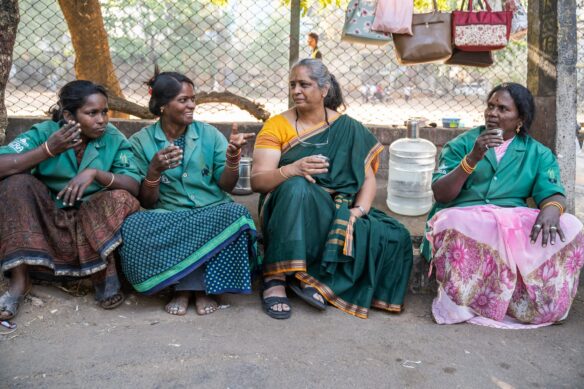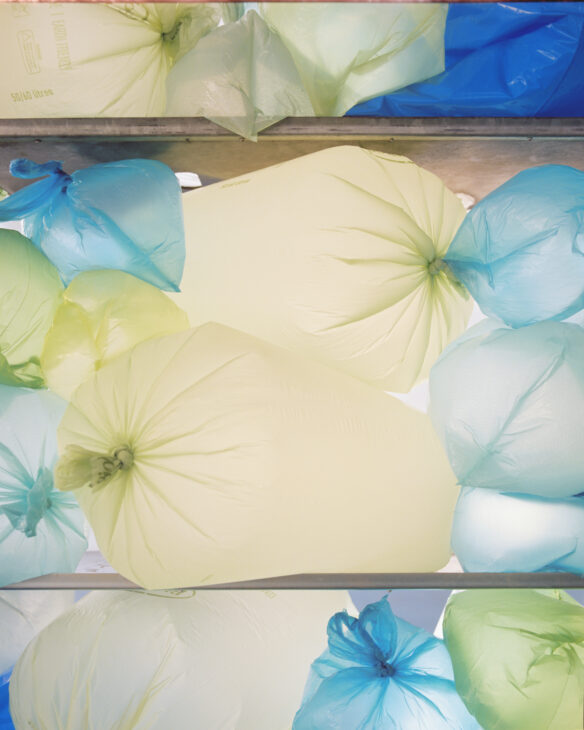Buttons partly made from plastic waste collected by informal waste pickers in Bengaluru are being featured on garments sold worldwide. The buttons are traceable down to the source of the waste along with names of the workers, social security, salaries and working conditions at the aggregation centre.
With the fashion industry working to shift business models from linear to circular, new types of value chains arise – where recycled materials play an important part. But as the demand for recycled raw materials increases, there are urgent opportunities to create social inclusion along the new value chains.
Of the 62 million tonnes of waste generated annually in India, only 19% is treated and the rest ends up in landfills. The largest driving force behind recycling, are the roughly 1.5-4 million informal waste pickers, who are crucial to the waste management system and key players in the circular economy, yet live in poverty, suffer harassment, and have little linkage to social support services.
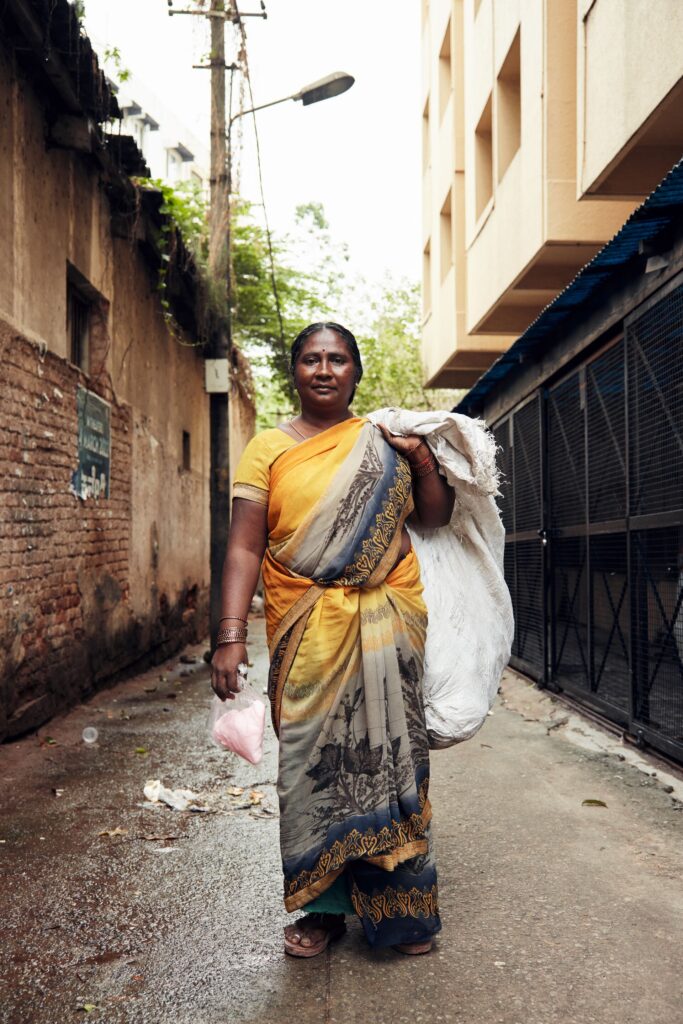
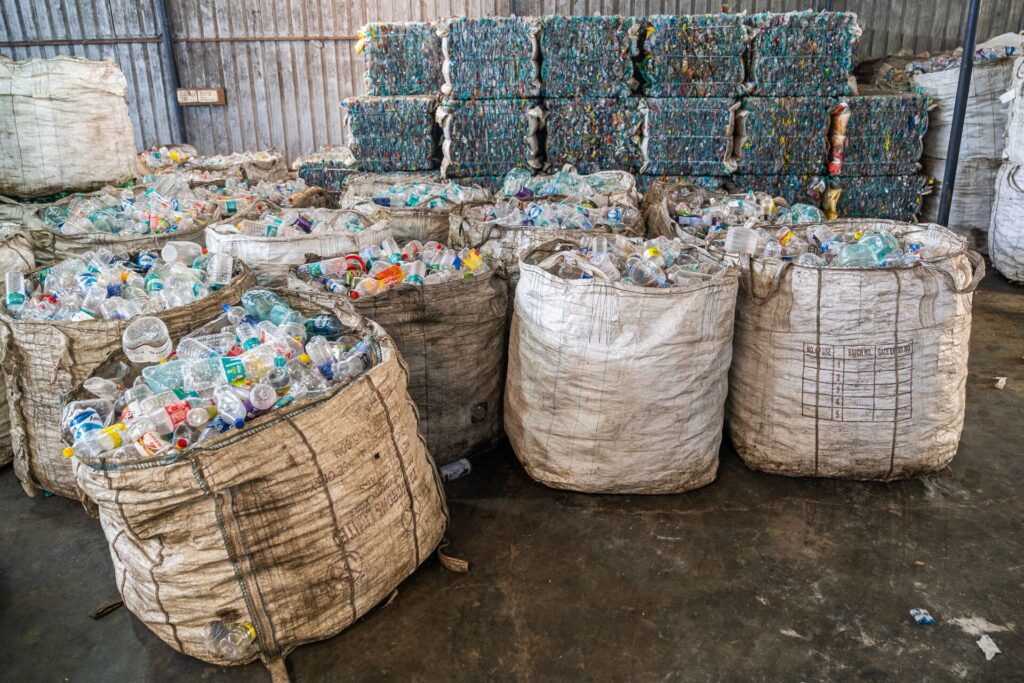
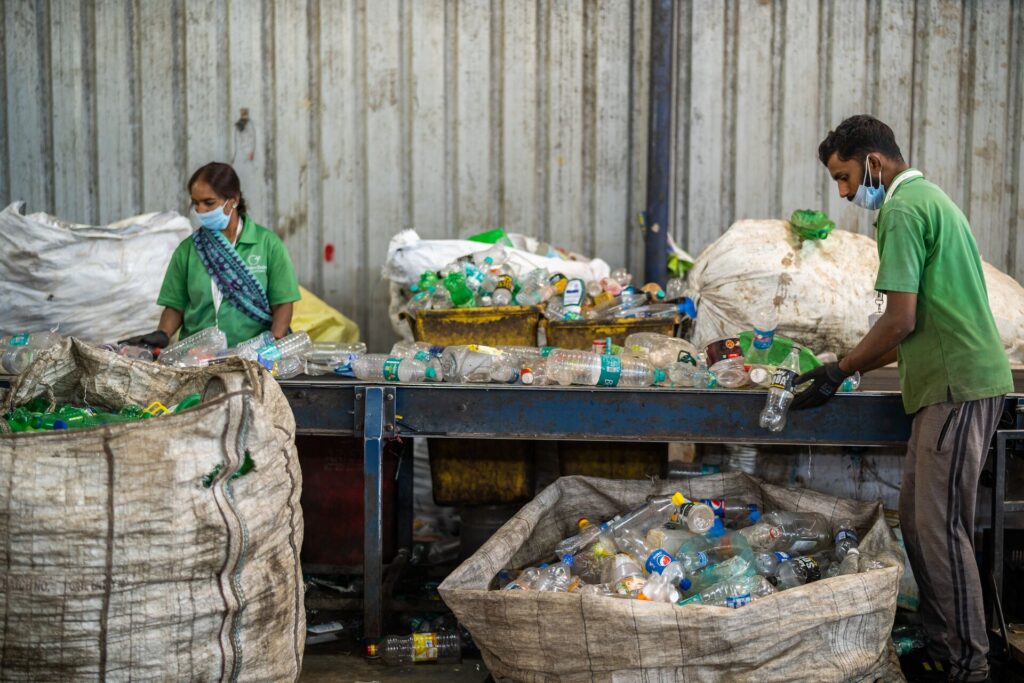
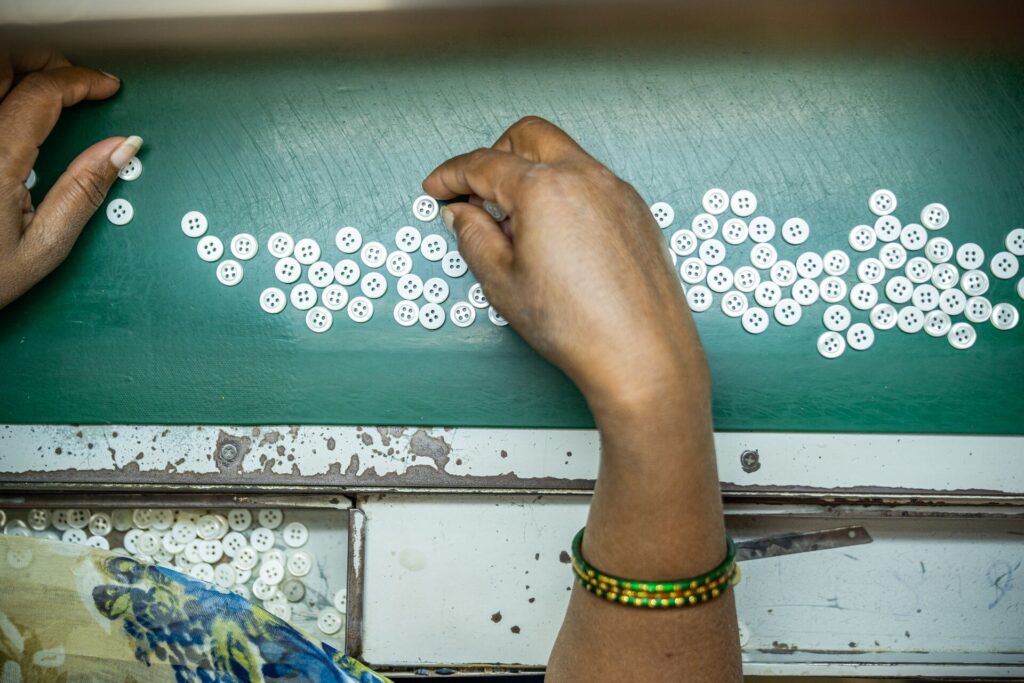
Saamuhika Shakti unites ten local experts and NGOs across sectors in a holistic ecosystem in Bengaluru India, aiming to equip waste pickers to lift themselves out of poverty. It is already impacting 32,000 people in the community in various aspects – that the waste pickers themselves have identified – such as safe working conditions, access to social services and good quality education, water and sanitation, up-skilling or access to alternative jobs, innovations in waste management streams, shifting the perceptions around waste pickers, as well as increasing economic opportunities.
“If we collaborate holistically towards inclusive circularity, we can catalyse solutions that allow both people and planet to thrive. By addressing challenges related to waste pickers’ lives, they have the potential to lift themselves out of poverty as well as contribute to a global circular system.”
Maria Bystedt, Strategy Lead H&M Foundation
The initiative has also caught the fashion industry’s attention as they are looking for recycled plastic. The post-consumer PET waste sourced by waste pickers in Bengaluru is sold to social enterprise Hasiru Dala Innovations. From there, the PET waste is then flaked and washed and provided to button suppliers. So far, it has resulted in 152 million buttons on garments sold worldwide.
The partners of Saamuhika Shakti
- H&M Foundation – Initiator and funder of Saamuhika Shakti
- The/Nudge Institute – Operates as a local backbone organization that coordinates the initiative
- BBC Media Action – Drives a perception change program, to improve professional pride among waste pickers and encourage Bengaluru’s general population to respect and value waste picking.
- CARE India and Sambhav Foundation – Offers up-skilling and supports alternative livelihood options – either within the waste management value chain or outside it. CARE India works to improve the knowledge of saving money, opening bank accounts, learning basic computer functions and expanding their digital literacy. Sambhav Foundation aims to improve the earning potential of waste pickers through skill development initiatives and employment support.
- Circular Apparel Innovation Factory and Enviu – Recovers and reclaims value from textile waste while creating green and sustained livelihoods for the informal waste pickers.
- Hasiru Dala – Improves linkages to government schemes, to enable access to basic services; and runs programs to reduce substance abuse and domestic violence in waste picker households. They are also developing user centric tools & equipment to improve working conditions.
- Save the Children India – Improves access to quality education, for example through mobile learning centers (buses) that visit the communities, to enable social mobility for children of waste pickers
- Social Alpha – Develops new waste streams by finding and supporting innovations that accelerate waste management in India, while increasing and improving the stability of waste picker incomes.
- Water Aid India – Offers affordable access to WASH facilities for waste picker households, with a focus on clean drinking water. WaterAid also trains the community to take on the ownership of the infrastructure developed in the communities.
The impact of the initiative is externally evaluated by 3ie
Learn more about Saamuhika Shakti.
